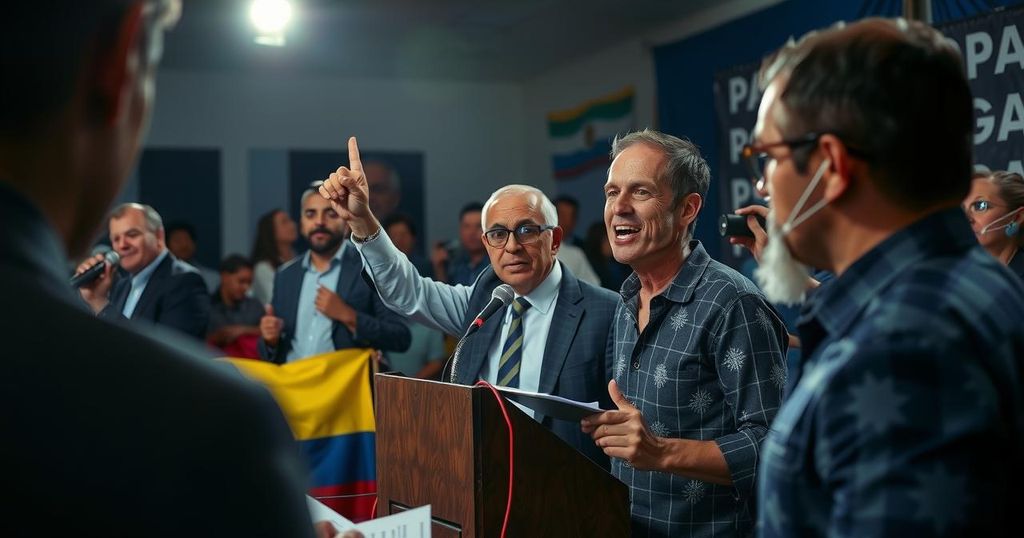World news
ALVARO DELGADO, ARGENTINA, ASIA, ATLANTIC, BROAD FRONT, COLORADO PARTY, CUBA, DELGADO, DEMOCRACY, ELECTIONS, FRONT, JOSE MUJICA, LATIN AMERICAN, LUIS LACALLE POU, MEXICO, NATIONAL PARTY, NORTH AMERICA, OR, PHILIPPINES, POLITICS, PRESIDENTIAL ELECTION, PRESIDENTIAL ELECTIONS, SOUTH AMERICA, TRADE RELATIONS, URUGUAY, VENEZUELA
Elena Martinez
0 Comments
Uruguay’s Presidential Run-off: A Commitment to Democratic Stability
Uruguay’s presidential run-off featured Conservative Alvaro Delgado and leftist Yamandu Orsi, underscoring a commitment to democratic principles. Orsi led the initial election but did not achieve a majority, prompting a run-off where both candidates focused on economic strategies. The peaceful electoral environment marked a contrast with other Latin American nations, emphasizing Uruguay’s democratic stability.
In Uruguay, a presidential run-off unfolded between Conservative candidate Alvaro Delgado and leftist contender Yamandu Orsi. This election followed a general election where Orsi led with 44 percent of the vote but fell short of the 50 percent necessary to win outright, thus necessitating a run-off. Despite past political turbulence in the region, Uruguay is often viewed as a stable democracy. In the lead-up to this election, both candidates focused on economic improvement—Orsi emphasized wage increases for low-income workers while Delgado proposed reducing bureaucratic hurdles and enhancing trade relations.
The election, which showcased Uruguay’s commitment to democratic principles, witnessed both candidates pledging to respect the results and cooperate post-election. Influential figures like former President José Mujica endorsed Orsi, who aimed to amplify social welfare measures. Meanwhile, outgoing President Luis Lacalle Pou’s restriction on consecutive terms propelled Delgado into the spotlight. The peaceful nature of the election was noted, with local commentators observing the calm atmosphere as indicative of Uruguay’s democratic maturity.
Uruguay, located on the southern Atlantic coast of South America, is garnering attention for its stable democratic process amidst a backdrop of political unrest in other Latin American nations. This election cycle is particularly significant as it marks a crucial moment for Uruguay to demonstrate its commitment to democratic values and economic development. The country has a history of political shifts, with the leftist Broad Front previously in power until the conservative National Party claimed victory in 2019. The current electoral contest reflects both the resilience of its democratic institutions and the ongoing discourse on economic policies.
The recent presidential run-off in Uruguay highlighted not only the competitive political landscape but also the nation’s emphasis on maintaining democratic values. Candidates Alvaro Delgado and Yamandu Orsi showcased contrasting yet constructive approaches to economic reform, reflecting the electorate’s concerns. The mutual respect for electoral outcomes further illustrates Uruguay’s political maturity, positioning it as a beacon of democratic stability in a tumultuous region.
Original Source: www.aljazeera.com




Post Comment